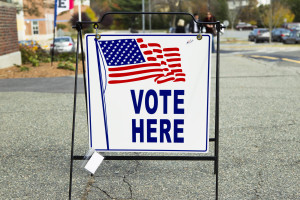A North Carolina police officer accused of excessive force in the shooting death of an unarmed black suspect in September of 2013 called an expert witness in police tactics to bolster his defense before closing arguments. The defense expert was called to counter testimony from prosecution expert witnesses who explained that the officer used unreasonable force when he deployed his firearm. The jury will deliberate this week to determine if the officer is guilty.
Prosecutors in North Carolina Police Shooting Argue Excessive Force
On September 14th, 2013 Jonathan Ferrell, a black resident of North Carolina, crashed his car on a dark patch of road in eastern Charlotte. Ferrell walked to a nearby house to ask for aid, but the homeowner called 911 to report a possible burglary. Police responded to the scene minute later, and without approaching or verbally addressing Ferrell one officer fired a Taser shot at him. After the Taser shot missed, Officer Randall Kerrick opened fire with his pistol hitting Ferrell 10 times and killing him.
Kerrick was subsequently suspended from the police force, arrested, and charged with using excessive force to cause Ferrell’s death. Prosecutors have argued throughout the trial that Kerrick had no reason to resort to lethal force in addressing the potential suspect, and that his use of a firearm was unnecessary and criminally excessive. As part of the prosecution’s case, police captain Mike Campagna testified as an expert in the department’s use of force training and procedures by telling jurors that Kerrick should have turned to non-lethal force in an effort to subdue the suspect.
Prosecutors largely ignored the racial component of the trial (Kerrick is white while Ferrell was black), instead focusing on the fundamental principles of police use of force in situations like the one Kerrick faced. Arguing that the officer inappropriately resorted to using his gun, state attorneys told jurors in closing arguments that lethal force was uncalled for and excessive to the point where Kerrick deserved a conviction.
Defense Attorneys for NC Police Officer Call Use of Force Expert Witness
Throughout the trial, Kerrick’s attorneys have argued that the officer was justified in using deadly force because he had reason to feel threatened by Ferrell. Showing jurors the dented front door of the house that Ferrell had pounded on and pointing out that the suspect, who was a former football player and physically intimidating, had been intoxicated at the time of the incident, Kerrick’s lawyers painted a scene where Ferrell was threatening and approaching the officers with apparent intent to harm them. The defense argued that Kerrick’s belief that he needed to use deadly force was reasonable given the circumstances the officer found himself in.
To bolster justification for Kerrick’s actions, defense attorneys called Dave Cloutier who is a police training expert witness with knowledge of proper police use of force procedure. According to Cloutier, Kerrick’s decision to deploy deadly force to subdue Ferrell was consistent with the department’s training. Cloutier has been an instructor to North Carolina police, and pointed out during his testimony that the evidence suggested Ferrell was running towards the officers at the time of the shooting. According to Cloutier’s expert opinion, a suspect running at an officer with apparent intent to injure him would justify use of deadly force.
Police scientist Eve Rossi was called as a DNA expert witness to conclude the defense’s case by testifying that Ferrell’s DNA was found on Kerrick’s gun and Kerrick’s DNA was found under Ferrell’s fingernails. Taking the testimony of its lead expert witnesses together, defense attorneys argue that the physical evidence supports Kerrick’s position that Ferrell was approaching him with possible intent to take his weapon which justified use of deadly force by the officer. The testimony of these two expert witnesses for the defense is likely to play a significant role in the jury’s verdict that will be announced later this week. If convicted, Kerrick faces up to 11 years in prison for the shooting.













